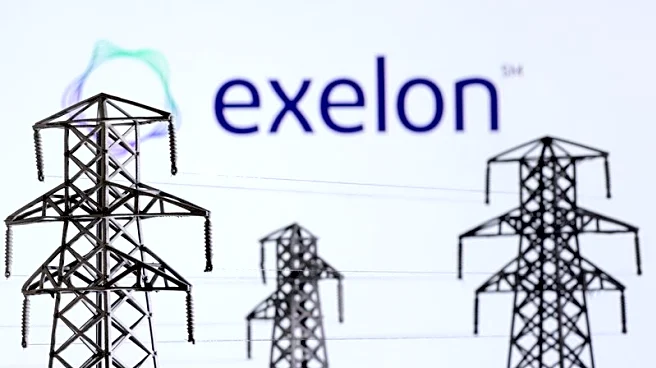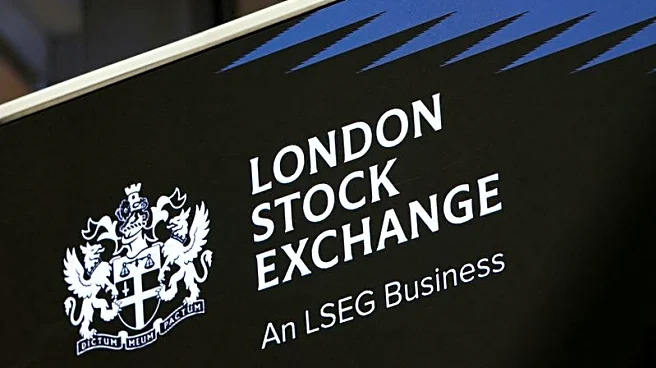What's Happening?
The Eagle Hill Consulting Employee Retention Index for the third quarter has reached a record high of 105.8, indicating that U.S. workers are increasingly likely to remain in their current positions over
the next six months. The index, which measures organizational confidence, culture, compensation, and job market opportunity, saw increases across all four indicators compared to the previous quarter. Millennials reported the highest likelihood of staying in their jobs, with a figure of 114.2, while Gen X showed the lowest inclination to remain, with a figure of 97.2. Organizational confidence reached a record high of 104.7, with Gen Z and Millennials showing strong gains, whereas Gen X and Baby Boomers experienced a slight decrease. The compensation indicator also hit a record high, gaining 6.5 points to 109.9, with men reporting higher satisfaction than women.
Why It's Important?
The increase in the Employee Retention Index suggests a shift towards greater job stability in the U.S. workforce, which could have significant implications for employers and the economy. Higher retention rates may lead to reduced recruitment and training costs for companies, allowing them to allocate resources more efficiently. Additionally, increased organizational confidence and satisfaction with compensation could enhance employee productivity and morale, contributing to overall business performance. However, the persistent gender gap in compensation sentiment highlights ongoing challenges in achieving workplace equality. Employers may need to address these disparities to maintain a motivated and equitable workforce.
What's Next?
As the Employee Retention Index continues to rise, companies may focus on strategies to sustain high retention rates, such as improving workplace culture and offering competitive compensation packages. Employers might also need to address generational differences in job satisfaction and retention, particularly the lower inclination of Gen X to remain in their roles. This could involve targeted initiatives to boost confidence and engagement among this demographic. Additionally, the gender gap in compensation sentiment may prompt organizations to review their pay structures and implement measures to ensure fair and equitable compensation for all employees.
Beyond the Headlines
The record high Employee Retention Index could signal broader economic stability, as job security often correlates with consumer confidence and spending. This trend may contribute to economic growth, as stable employment encourages individuals to make long-term financial commitments, such as purchasing homes or investing in education. Furthermore, the focus on retention may drive companies to innovate in employee engagement and satisfaction strategies, potentially leading to new best practices in workforce management.










